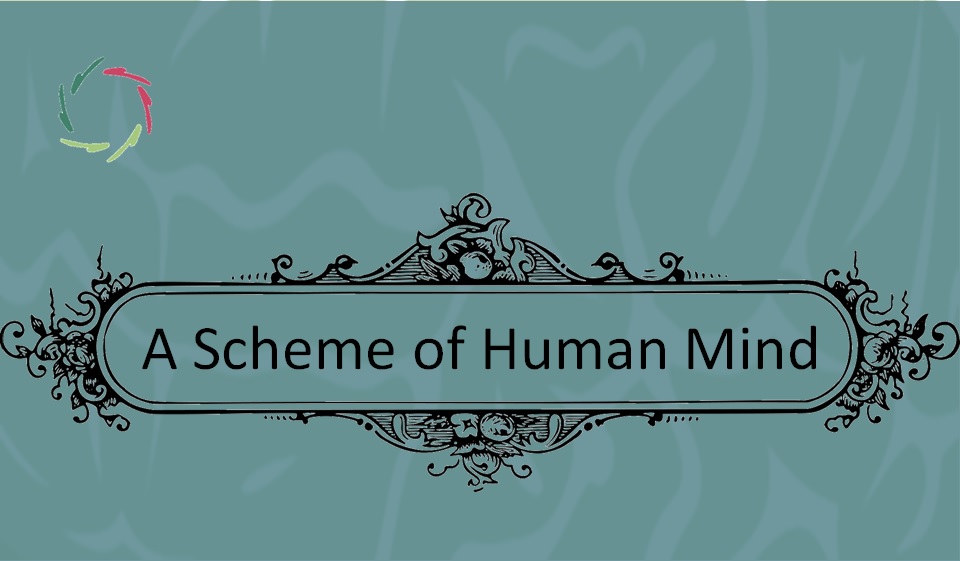A Scheme of Human Mind

This blog focuses on an abstract scheme of the human mind, illustrating the relationship between the conceptual and subconceptual domains of mental processing over time.
Abstract as it is, this explains many human affairs — positive and negative.
Half the scheme

The horizontal line indicates time.
The scheme is simple. Each of us experiences a continuous stream of consciousness, transitioning from thought to thought, feeling or decision, forming an unbroken narrative from birth to death. This unbroken narrative shapes our identity and perception of reality, influencing how we interact with the world and ourselves.
The prevalent idea in daily life
This accords with the above scheme.
Many people live their entire lives believing the Cartesian view that the human mind is composed solely of what lies above the line. It’s as if one conscious idea directly engenders the next, furthermore influenced by the environment but not by anything mind-related coming from under the line.
You “either know or don’t know.”
But there is no truth in this
The other half of the scheme

Neurocognitive science reveals that our initial scheme represents only a portion of the human mind.
Most of the meaningful stuff that happens in the brain (keeping things simple) occurs beneath the horizon line in a domain that I call the subconceptual. As the name suggests, there are no fully developed concepts here—only neurons forming patterns (mental-neuronal patterns, MNPs) that create patterns of patterns.
We have a continuous flow of non-conscious processing, which drives the evolution of our thoughts and feelings over time.
Note that, of course, there are continua everywhere.
For instance, we humans have no tails but we have tailbones, causing problems to some.
Likewise, conceptual thinking is no black-or-white business.
The entire scheme

The second scheme resembles non-human animals more closely, as they struggle to work with concepts in their minds. This distinction underscores the unique human capacity for abstract thinking and complex problem-solving.
Combining both schemes, we achieve a complete picture, where the ‘motor’ functions beneath the line operate invisibly at a conceptual level. This is, we can intuitively feel that things are going on beneath the line but not conceptually grasp them as such. We can only abstractly describe the process as I’m doing now.
So, what happens in the human mind/brain
Many MNPs remain mostly inactive, with only a limited number becoming active at any given moment. Only a few of these are active enough to rise above the (abstract!) line and can be consciously experienced in conceptual guise, as shown in the scheme.
Most of what meaningfully happens beneath the line doesn’t reach conscious awareness, even though this influences anything that eventually does reach consciousness.
Consequently, we are predominantly driven by non-conscious processes.
Subconceptual Drives Conceptual
Yet, we continually work, play, and live as if non-conceptual processing – meanwhile guiding decisions without conscious awareness – does not exist. This is our basic cognitive illusion.
Recognizing and embracing this illusion can lead to greater self-awareness and a deeper understanding of our motivations and behaviors. It’s an Oriental kind of ‘Enlightenment’ that seems simple in the scheme. However, it makes all the difference in the world in every mind-related domain.
This applies, of course, to every domain in the human world, including healthcare as described in my book Your Mind as Cure.


